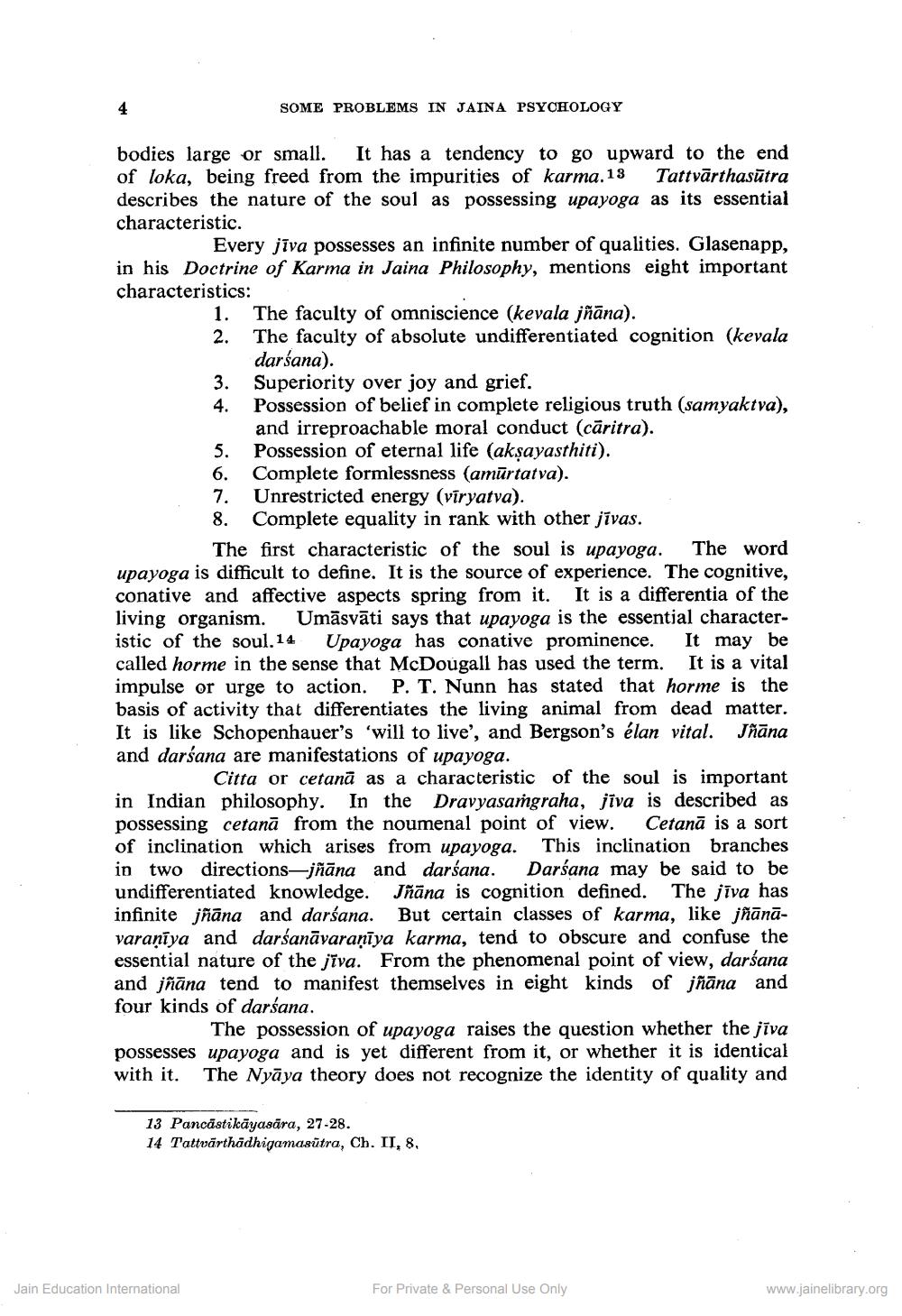________________
SOME PROBLEMS IN JAINA PSYCHOLOGY
bodies large or small. It has a tendency to go upward to the end of loka, being freed from the impurities of karma.13 Tattvārthasūtra describes the nature of the soul as possessing upayoga as its essential characteristic.
Every jīva possesses an infinite number of qualities. Glasenapp, in his Doctrine of Karma in Jaina Philosophy, mentions eight important characteristics:
1. The faculty of omniscience (kevala jñāna). 2. The faculty of absolute undifferentiated cognition (kevala
darśana). Superiority over joy and grief. Possession of belief in complete religious truth (samyaktva), and irreproachable moral conduct (cāritra).
Possession of eternal life (akşayasthiti). 6. Complete formlessness (amūrtatva). 7. Unrestricted energy (viryatva). 8. Complete equality in rank with other jīvas.
The first characteristic of the soul is upayoga. The word upayoga is difficult to define. It is the source of experience. The cognitive, conative and affective aspects spring from it. It is a differentia of the living organism. Umāsvāti says that upayoga is the essential characteristic of the soul.14 Upayoga has conative prominence. It may be called horme in the sense that McDougall has used the term. It is a vital impulse or urge to action. P. T. Nunn has stated that horme is the basis of activity that differentiates the living animal from dead matter. It is like Schopenhauer's 'will to live', and Bergson's élan vital. Jñāna and darśana are manifestations of upayoga.
Citta or cetanā as a characteristic of the soul is important in Indian philosophy. In the Dravyasaṁgraha, jīva is described as possessing cetanā from the noumenal point of view. Cetanā is a sort of inclination which arises from upayoga. This inclination branches in two directions-jñāna and darśana. Darsana may be said to be undifferentiated knowledge. Jñāna is cognition defined. The jīva has infinite jñāna and darśana. But certain classes of karma, like jñānāvaraṇīya and darśanāvaraṇīya karma, tend to obscure and confuse the essential nature of the jīva. From the phenomenal point of view, darśana and jñāna tend to manifest themselves in eight kinds of jñāna and four kinds of darśana.
The possession of upayoga raises the question whether the jīva possesses upayoga and is yet different from it, or whether it is identical with it. The Nyāya theory does not recognize the identity of quality and
13 Pancāstikāyasāra, 27-28. 14 Tattvārthadhigamasutra, Ch. II, 8.
Jain Education International
For Private & Personal Use Only
www.jainelibrary.org




